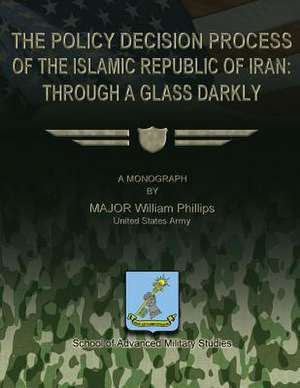The Policy Decision Process of the Islamic Republic of Iran
Autor Us Army Major William Phillips Contribuţii de School Of Advanced Military Studiesen Limba Engleză Paperback
Preț: 113.66 lei
Nou
Puncte Express: 170
Preț estimativ în valută:
21.76€ • 23.64$ • 18.29£
21.76€ • 23.64$ • 18.29£
Carte disponibilă
Livrare economică 31 martie-14 aprilie
Preluare comenzi: 021 569.72.76
Specificații
ISBN-13: 9781479344185
ISBN-10: 1479344184
Pagini: 56
Dimensiuni: 216 x 279 x 3 mm
Greutate: 0.15 kg
Editura: CreateSpace Independent Publishing Platform
ISBN-10: 1479344184
Pagini: 56
Dimensiuni: 216 x 279 x 3 mm
Greutate: 0.15 kg
Editura: CreateSpace Independent Publishing Platform
